Breaking
- MENU
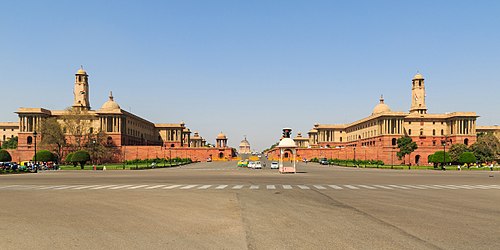
BILATERAL ISSUES
JORDAN
Meeting between Prime Minister and King of Jordan in Riyadh, Riyadh, 29 October 2019.
Prime Minister Shri Narendra Modi met King of the Hashemite Kingdom of Jordan His Majesty Abdullah II bin Al-Hussein today on the side-lines of the Future Investment Initiative (FII) in Riyadh, Saudi Arabia. The two leaders exchanged views on strengthening bilateral relations, including MoUs and Agreements signed during His Majesty's visit to India from 27 February -01 March 2018. They discussed the Middle East Peace Process and other regional developments. Both leaders also discussed cooperation in counterterrorism.
Historical links, cultural affinities and people-to-people contacts between India and Jordan have existed since times immemorial. Prime Minister's visit to Jordan and King's visit to India in 2018 have imparted a new momentum in our bilateral relations that are marked by mutual respect and understanding on various bilateral, regional and multilateral issues. Source: Ministry of External Affairs (MEA).
KUWAIT
Embassy of India in Kuwait, in Association with the Indian Community in Kuwait, Organized a Cultural Event - ‘Hala Diwali, Kuwait, 29 October 2019.
Embassy of India in Kuwait, in association with the Indian Community in Kuwait, organized a cultural event-‘Hala Diwali’ -at the Embassy Auditorium on 22 October 2019 to mark the festive occasion of Diwali and to commemorate the 150th Birth Anniversary of Mahatma Gandhi. His Excellency Ambassador Sheikh (Dr.) Ahmed Nasser Mohamad A. Al-Sabah, Assistant Foreign Minister for the Cabinet of the Deputy Prime Minister and Minister of Foreign Affairs graced the event as the Chief Guest. The event was very well attended with the presence of a large number of distinguished guests comprising officials from various Ministries/Departments of the Government of the friendly State of Kuwait, Kuwaiti Business/Academics fraternities, Diplomats and some of the representatives of the Indian Community in Kuwait. In a spell-bounding performance lasting around 90 minutes, a musical troupe, consisting of more than 20 talented artists from India and a renowned singer from Kuwait, enthralled the audience with a splendid display of music and dance. The evening was a celebration of India’s art and culture, and a tribute to the warm friendship and close cultural affinities between the friendly countries of India and Kuwait. Source: Embassy of India, Kuwait.
OMAN
Speech on the celebration of 150th Birth Anniversary of Mahatma Gandhi and United Nations International Day of Non-violence, Muscat, 02 October 2019.
Your Excellency Ali bin Khalfan Al Jabri, Undersecretary, Ministry of Information
Dignitaries from Government of Oman
Colleagues from the Diplomatic Corps
Sister B.K. Jayanti Kirpalani,
Members of Indian community,
Distinguished Guests,
Good evening!
I am delighted to welcome you all to the celebration of 150th birth anniversary of Mahatma Gandhi and to observe the UN International Day of Non-Violence. This event has been organized by the Indian Embassy in association with Rajyoga Centre for Self-development.
We are in the middle of two-year long celebrations to commemorate the 150th Birth Anniversary of Mahatma Gandhi, the great apostle of peace and non-violence and the Father of the Indian nation. Last year, on 2nd October 2018, we launched the celebrations through a mega event which was attended by over 1500 persons. I am delighted that we once again have a large gathering on this occasion.
Friends, Gandhiji’s message of peace and non-violence is of universal and eternal relevance. It is more relevant today than ever before as the world faces numerous conflicts. It was in recognition of this fact that the United Nations decided to observe the birth anniversary of Mahatma Gandhi as the International Day of Non-violence.
Further, Gandhiji’s emphasis on sustainability is most relevant in today’s scenario when the whole world is facing the catastrophic consequences of climate change. As Gandhiji had said, “The world has enough for everyone's needs, but not everyone's greed”.
His concept of Sarvodaya (upliftment of all) seeks that benefits of growth and development should reach all sections of society. The Sustainable Development Goals (SDGs) which the international community has collectively agreed on, are essentially in line with the Gandhian way of life.
In India, the Government consciously tries to incorporate the Gandhian approach in its programmes and schemes. The Sultanate of Oman, under the leadership of His Majesty Sultan Qaboos, is a living example of continued relevance of Gandhiji’s ideals.
The Embassy of India has been organizing a series of events to create greater awareness about the life and teachings of Mahatma Gandhi. We have made special efforts to reach out to the youth of Indian, Omani as well as other nationalities. We have organized online quizzes, talks, tree plantation drive and screening of documentaries. Coinciding with today’s event, we had organized a photography competition and the winning entries have been displayed.
I am also happy to announce that earlier today, “Student Solar Ambassador Program” was organized in 15 Indian schools across Oman under which students joined a global event to make their own solar study lamps and pledged non-violence towards environment. This event was organized in association with Indian Institute of Technology, Bombay.
We are encouraged by the enthusiastic response and participation in these events. I would like to thank Government of Oman for its wholehearted support to our efforts.
In the coming months, we will organize more events including a Khadi Exhibition and a Vegetarian Food Festival. I invite all of you, your friends and family members especially children to actively participate.
I take this opportunity to extend a warm welcome to Sister B.K. Jayanti Kriplani, a renowned motivational speaker, who will speak on the theme of “One Heart One Mind One World”.
I would like to thank all of you for joining us today. Special thanks to H.E. Ali bin Khalfan Al Jabri, Undersecretary Ministry of Information, for gracing this occasion as the Chief Guest. I hope all of you will find today’s programme meaningful and enriching.
Thank you! Source: Embassy of India, Muscat.
Indian Embassy Celebrates Indian Technical & Economic Cooperation (ITEC) Day’ 2019, Muscat, 10 October 2019.
The Embassy of India, Muscat, celebrated the 55th anniversary of the Indian Technical & Economic Cooperation (ITEC) Day on Wednesday, 09th October 2019 at its premises. His Excellency Sheikh Khalid bin Omar Al Marhoon, Minister of Civil Service was the Chief Guest of the event. The event was attended by a number of senior officials from various Ministries and institutions of the Sultanate of Oman as well. Around 200 ITEC Alumni from Oman, comprising Omani Officials and professionals, who have participated in various training courses in India under ITEC Programme during previous years, attended the celebration.
ITEC Programme was launched in September 1964 as a bilateral programme of assistance of the Government of India for capacity building of friendly developing countries. It has emerged as a key vehicle for India’s contribution to Human Resource Development of partner countries. Under the ITEC Programme, every year India provides around 14,000 scholarships in around 300 short, medium and long-term training courses conducted in 100 state-of-art institutions of learning & excellence for officials from 161 countries from Asia, Africa, East Europe, Latin America, the Caribbean as well as Pacific and Small Island countries. Since its inception in 1964, approximately 200,000 professionals from all over the globe have benefited from ITEC programme. In view of India’s exceptionally close relations with Oman, Government of India has offered 125 scholarships for Oman under the ITEC Programme for the period April 2019-March 2020. Over the years, ITEC Programme has received a good response and hundreds of Omani Government officials have attended ITEC courses.
The ITEC Programme covers a diverse range of subjects from traditional areas like agriculture, SMEs, management, English language to IT, Science & Technology, biotechnology, etc. The skills which are being provided under ITEC Programme facilitate human resource development, capacity building, skill upgradation and empowerment.
‘ITEC Day’ celebration is India’s annual endeavour to bring ITEC alumni together so that they can share their experiences and views on India with one another. The ITEC Day provided an opportunity to the ITEC Alumni, who have been trained in India under this Programme, to get-together at the Embassy to interact among themselves and learn from their experiences. ITEC Alumni were invited to speak and share their experience of training under the ITEC Programme in India. They spoke about the benefits of ITEC courses not only in providing knowledge and expertise but in giving them an opportunity to interact with trainees from other countries and learn more about India and its culture and traditions.
In his remarks, Ambassador of India to the Sultanate of Oman, Shri Munu Mahawar stated that the ITEC Programme was rooted in the Indian philosophy of “Vasudhaiva Kutumbakam” which means that the whole world is one family. He thanked the Chief Guest for his invaluable contribution in the successful implementation of ITEC programme between India and Oman. Ambassador also expressed sincere gratitude towards the Ministries of Civil Service and Foreign Affairs of the Sultanate of Oman for their efforts in encouraging officials from all relevant departments of the Government of Oman to participate in the programme. Ambassador further stated that India will remain a strong partner in Oman’s journey towards economic diversification and its vision to become a knowledge economy and reiterated India’s commitment to strengthen and expand its strategic partnership with Oman, including in the field of training and skill development.
Ambassador informed the distinguished guests regarding the launch of new modalities like e-ITEC and ITEC-onsite by the Government of India and was elated to speak about the completely revamped ITEC programme this year with new partner institutions and the addition of special courses like artificial intelligence, nanotechnology, petroleum and forensic science which will be offered by top-notch institutions like IITs, IIMs etc. Source: Embassy of India, Muscat.
Ambassador’s speech on IECTC Day, Muscat, 10 October 2019.
Your Excellency Sheikh Khalid bin Omar Al Marhoon, Minister of Civil Service,
Esteemed dignitaries from Government of Oman,
Distinguished ITEC Alumni,
Ladies & Gentlemen,
Good evening!
I extend a very warm welcome to all of you at the Indian Embassy for the celebration of ITEC Day, 2019
Let me first express our sincere gratitude to H.E. Sheikh Khalid Al Marhoon for accepting our invitation to be the Chief Guest for this function. Excellency, we deeply appreciate and value your personal interest and support in the successful implementation of ITEC Programme between India and Oman.
We are equally thankful to officials of Ministries of Civil Service and Foreign Affairs of the Sultanate of Oman for their efforts in encouraging officials from all relevant departments of the Government of Oman to participate in this programme.
I also thank the ITEC alumni for joining us today in large numbers. I am sure that the training courses you attended in India have been useful in your profession and during your stay in India you had a chance to know India a little better. I encourage you to share your experiences with us so that we can work towards improvements wherever required.
I also encourage you to continue to engage with India; the doors of Indian Embassy in Muscat are always open for you. Today’s function is your own function so feel free to interact with us as well as among each other and revive your memories and experiences of your stay in India.
Friends, as you know, India and Oman have always enjoyed close and friendly relations spanning over thousands of years. These strong bilateral relations have become exceptionally close under the wise leadership of HM Sultan Qaboos and evolved into a strategic partnership. I take this opportunity to wish His Majesty, on behalf of all of us, a long life and good health.
Friends, the ITEC program is rooted in the Indian philosophy of “Vasudhaiva Kutumbakam” which means that the whole world is one family. Under this programme, India shares its knowledge and know-how for capacity building of other developing countries.
Overall under ITEC Programme, as you just heard, India provides around 14,000 scholarships to 160 partner countries for over 300 short, medium and long-duration courses in 100 state-of-art centres of learning & excellence in India.
Last year, we had offered 125 slots to Oman and the utilization was close to 100%. This year too, we have offered 125 slots for Oman and the numbers can be further increased depending on the pace of utilization.
This year marks the 55th anniversary of the Programme and to commemorate it, Government of India has taken two new initiatives. The first one is e-ITEC which is live online training; and the second is ITEC-on-site which involves ITEC resource persons to visit the partner country to deliver tailor-made courses for them. I am sure these new models will also be explored and utilized by Government of Oman in the coming years.
Let me also underline what was conveyed in the film. This year the programme has been revamped with new partner institutions and programmes. We have added special courses like artificial intelligence, nanotechnology, petroleum and forensic science which will be offered by top-notch institutions including IIT-Kanpur, IIT-Delhi, IIM Ahmedabad among others.
As you are aware, ITEC also offers country-specific courses which are more demand driven. For this, we need a group size of 20-25 persons. Last year, we organized such a programme for a group of officials from Majlis Al Shura. We look forward to organizing similar programmes this year for other institutions and departments. I encourage you to convey your areas of interest at an early date.
Excellencies, ladies and gentlemen, we are well aware of Oman’s efforts towards economic diversification and its vision to become a knowledge economy. I take this opportunity to reiterate India’s commitment to strengthen and expand its strategic partnership with Oman, including in the field of training and skill development.
Before concluding, I once again thank all of you for taking time to attend this function and wish you all the best. Thank you. Source: Embassy of India, Muscat.
Indian Embassy organized B2B Session on Food Sector, Muscat, 15 October 2019.
Embassy of India, Muscat, organized an India-Oman Business-to-Business (B2B) Meeting on Food Sector on Monday, 14 October 2019 at its premises. The B2B session helped in facilitating interaction and tie-ups between representatives of Indian companies visiting Oman to participate in ‘Food and Hospitality Oman 2019’, with their Omani counterparts. Dr Salim Suleym Saleh Al Junaiby, Vice-Chairman of Oman Chamber of Commerce was the Chief Guest on this occasion.
India Trade Promotion Organisation (ITPO), a Government of India enterprise and India's premier trade promotion body under the Department of Commerce, engaged in promoting trade and commerce of India along with 7 leading Indian companies and Coconut Development Board (India) is participating in this year's edition of Food and Hospitality Oman.
In his welcome remarks Shri Rakesh Adlakha, Deputy Chief of Mission at the Embassy referred to the historical ties between Oman and India, which span over several millennia, and stated that trade and commerce has been a key facet of this relationship. He also mentioned that food sector offered huge potential for cooperation between the two countries.
As part of its endeavours to enhance contacts between business communities of both countries, the Embassy has been organizing various Business-to-Business meetings, roadshows, seminars etc. Embassy has also been facilitating participation of Omani companies in trade exhibitions in India as well as participation of Indian companies in trade exhibitions in Oman. Source: Embassy of Iran, Muscat.
SAUDI ARABIA
English rendering of PM's keynote address at Future Investment Initiative Forum in Riyadh, Riyadh, 29 October 2019.
Your Royal Highness, Excellencies, Ladies & Gentleman, Friends, Namaskar, Good Evening!
I would like to thank His Majesty the King and the Custodian of the two holy mosques and my brother His Royal Highness the Crown Prince for inviting me to participate in this Forum. Saudi Arabia and the holy mosques located here have been the centre of faith of crores of people around the world. This land has also been a source of energy for the world economy. Today I can also feel a positive energy amidst you in this energetic city of Riyadh.
Friends,
The topics of the Future Investment Initiative Forum make it clear that the purpose of this Forum is not just to discuss the economy here. It is also to understand the emerging trends in the world and find avenues for the world's welfare in it. For this reason, this dynamic platform has become an important part of the calendar of the business world. In just a short span of three years, this Forum has come a long way. My friend and brother Crown Prince deserves many congratulations for this success. His forum is called Davos of the Desert. In the last century, due to the hard work of the people of Saudi Arabia and the nature's gift, the sand of the desert has produced gold. The leadership of Saudi Arabia could have just sat comfortably, but it thought about many generations to come, and has shown concern about the future and has taken care of the whole humanity. I also congratulate His Highness Crown Prince that he did not just name this Forum as Future for the sake of it, but rather its whole concept is forward looking and oriented towards the future. In this way, being his brother and neighbour, it is only natural for me to represent the world's fastest growing economy in this excellent initiative.
Friends,
I have brought the good wishes of the people of India for you. We have been with Saudi Arabia for thousands of years. There has been such a friendship, as you say - Sadakatum, that we feel connected with each other. Our historical ties and contacts have also laid a strong foundation stone for our strategic partnership. And today we have given a new height to our relationship by establishing a Strategic Partnership Council after discussion with the Crown Prince. With the guidance of His Majesty the King and His Royal Highness Crown Prince, we have been able to bring unexpected progress and a sense of belonging in the relationship. I thank him for his efforts and his affection for India.
Friends,
Today at Future Investment Initiative, I have the opportunity to speak on "What's next for Global Business" and the emerging opportunities and possibilities in India, our expectations and goals. India has set the goal of doubling its economy in the next five years, making it a 5 trillion dollars economy. In such a scenario, this topic becomes all the more relevant and important.
Friends,
Today, as we want to accelerate growth in India, we have to understand the emerging trends well. Therefore, today I would like to talk to you about the five big trends that are influencing global business. The first trend is - Impact of Technology and Innovation; the Second - Importance of Infrastructure for Global Growth; the Third - Changes coming in human resource and future of work; the Fourth - compassion for environment and the fifth Trend is - Business friendly governance.
Friends!
We are all witnesses to the growing influence of technology and innovation. Transformative technologies like Artificial Intelligence, Genetics and Nanotechnology have moved beyond research to become a part of everyday life. This change of technology has benefited the societies which have developed a culture of adopting new technologies and further innovation on them. In India, we have tried at many levels to strengthen this culture, be it start-up challenges or Hackathons for the youth or Atal Tinkering labs for school children, where they experience innovation themselves. Today a comprehensive eco-system from research and development to tech-entrepreneurship is being prepared in India. The results of our efforts have also started showing up. Today India has become the third largest start-up ecosystem in the world. Start-ups have also emerged in India's Tier 2 and Tier 3 cities. The number of unicorns with valuations exceeding US $ 1 billion is increasing in India. Many of our start-ups are investing globally. Indian start-ups are acing everything, from food delivery to transport, to hospitality, to medical treatment, to tourism. And therefore, I request all the investors of the world, especially venture funds, to take advantage of our start-up ecosystem. I am confident that the investment in innovation in India will generate the highest returns. And these returns will also empower the youth.
Friends!
The importance of Infrastructure for global growth and development of business is constantly increasing. I believe that Infrastructure is an opportunity multiplier. Infrastructure provides businesses huge investment opportunities and at the same time infrastructure is necessary for business growth.
Friends,
Today, the opportunities for physical infrastructure in the world are available mostly in developing countries. In Asia, we need to invest $ 700 billion per year in infrastructure. In India, we have set a target of investing $ 1.5 trillion in infrastructure in the next few years. And then, today we do not think about infrastructure in isolation but our effort is to ensure an integrated approach. One Nation One Power Grid, One Nation One gas grid, and One Water grid, One Nation One Mobility Card, One Nation One Optical Fibre Network - with many such efforts, we are integrating the infrastructure of India. We have set a target of providing every Indian with a home, and to provide electricity and tap-water to every household. We have also seen unprecedented speed and scale of infrastructure development. And therefore, the growth of infrastructure in India will remain in double-digit, and there is no scope for capacity saturation. As a result, the returns to investors will also be ensured.
Friends,
The third trend i.e. change in human resources and future of work is also very important. Today's international investment decisions depend on the availability of quality manpower. Also, skilled manpower has become the criterion of valuation of any company. In such a scenario, making the people skilled fast is a challenge before us. As the nature of work is changing, we will have to re-skill people several times in the coming years. The cycles of Learn-unlearn and re-learn will become necessary.
Friends!
India's skilled human resources have gained respect and reputation around the world. Indian talent has carved a unique identity here in Saudi Arabia as a disciplined, law-abiding, hard-working and skilled workforce. To develop skill in India, we have developed a comprehensive vision and are continuously working on it. Through the Skill India initiative, we will train 400 million people in different skills in the next three-four years. Companies investing in India will get assured skilled manpower from it.
Friends,
The economy of the world will grow by making the movement of skilled manpower easier. I believe that we should not limit international trade agreements to only goods but also simplify it by making manpower and talent mobility an integral part of it.
Friends!
The fourth trend i.e. compassion for environment is not only a trend, but has also become a major necessity of our time. The impact of climate change and the importance of clean energy are so extensive that they cannot be ignored. Our energy consumption pattern will change further in the coming years. The inclination will increase from coal to oil, then oil to gas and finally towards renewables. Both energy consumption and energy savings will be important, and storage also. The challenges of environmental degradation will also increase. Realizing the same, in India, we are increasing the amount of investment in gas and oil infrastructure. We aim to invest up to $ 100 billion in refining, pipelines and gas terminals by 2024. I am glad that Saudi Aramco has decided to invest in India's West Coast Refinery Project, which will be Asia's largest refinery. We have recently liberalized the investment criteria in the downstream sector, especially in retailing, which will increase the ease of doing business in this sector. Besides this, the target of generating 175 GW of energy in Renewables will also be increased to 450 GW in the coming years. Investment in energy is very important for India's fast-growing economy. And we request the energy companies present here to take advantage of these opportunities.
Friends!
Last but not the least, the fifth trend i.e. the changing role of the government and its impact on the future of business is also very wide. My emphasis has always been on Minimum Government Maximum Governance. I think a proactive and transparent government can play the role of a good facilitator for a competitive, innovative and dynamic business sector. Clear rules and a fair system are necessary for the growth of the private sector. With this same thinking and approach, we have made several major structural reforms in India in the last five years. Today, India has become the biggest destination of foreign investment due to the smooth and liberalizing FDI policy. There has been $ 286 billion of Foreign Direct Investment in India in the last 5 years. This is almost half of India's total FDI Inflow in the last 20 years. We have made tough decisions like the Insolvency and bankruptcy code and country-wide a single taxation system. Today India's tax structure and IPR regime are comparable with the best business regimes in the world. Due to such reforms, India has been consistently doing better in every Global Ranking. We improved by 10 ranks in the Logistics Performance Index, jumped by 24 rank in Global Innovation Index. We were at 142th position in the World Bank's Ease of Doing Business Index in 2014, while today we are at 63rd position in 2019. For the third year in a row, we are among the top 10 reforms in the world. We have also abolished more than 1500 such archaic laws which were creating bottlenecks in development.
Friends,
In the last four-five years, more than 350 million people have been connected to the banking system. Today almost every citizen in India has a unique ID, Mobile Phone and Bank Account. This arrangement led to the plugging of leakage of more than $ 20 billion through a transparent process of Direct Benefit Transfer. That means, it saved 20 billion dollars. Healthcare is an important responsibility of any government. India has taken several steps to improve the quality of service in this area. Ayushman Bharat, the world's largest government health care programme, provides health cover to more than 500 million people i.e. more than the total population of America, Canada and Mexico. Moreover, due to this scheme, the possibilities of investment in health care in India have increased immensely. Today India is also the largest health care consumer and quality healthcare provider. The use of technology has revolutionized the healthcare sector. This has not only created economic opportunities, but has also increased the productivity of crores of people.
Friends,
Today, I want to assure you from this platform that this pace of progress in India will be faster. We are taking every decision related to the development of the country. Our policies are unambiguous and our goal is fixed. The roadmap for our $ 5 trillion economy goal is ready. This goal is not only for quantitative growth but also to improve the quality of life of every Indian. We are improving not only ease of doing business but also ease of living. Due to political stability, predictable policy and large diverse market, your investment will be most profitable in India.
Friends,
The cooperation of our partner countries is an integral part of our development journey. By exploring complementarity with all countries, and increasing synergy, we are working for a win-win solution. We will stand by Saudi Arabia's Vision 2030 and the schemes to diversify the economy.
Friends,
India will complete 75 years of independence in 2022. Till that time, we have set the goal of making a 'NEW INDIA' for ourselves. In that NEW INDIA, every Indian will have new dreams, a new strength in the heart and new energy in the steps. There will be a new potential in that New India.
Friends
That capable and powerful India will be a source of peace and joy not only for us, but for the whole world. History is a witness to the fact that even when India was the largest economy in the world and it was strong militarily, we did not pressurize anyone and did not use force on anyone. India has shared its capabilities and achievements with the whole world. Because we have considered the whole world as one family - 'Vasudhaiva Kutumbakam'! There will be a new strength in the New India, but the same eternal soul will be reflected in its thinking. Our development will create confidence in the world. Our progress will increase mutual love. I invite you and the businesses from all over the world, to partner with India in this journey of the world's welfare. I and my team are always ready to help you. You gave me an opportunity to share some of my thoughts. I thank you very much for lending your ears to me. Once again, I offer my heartfelt gratitude to the Crown Prince and the Kingdom. With that I end my speech.
Thank you very much. Source: Press Information Bureau (PIB).
Joint Statement on Visit of Prime Minister of India to the Kingdom of Saudi Arabia, Riyadh, 29 October 2019.
At the invitation of the Custodian of the Two Holy Mosques King Salman bin Abdulaziz Al Saud, the Prime Minister of the Republic of India His Excellency Mr. Narendra Modi paid an official visit to the Kingdom of Saudi Arabia on 29 October 2019.
The two sides held bilateral talks during which they reviewed the historical and close relations that bind the two friendly countries and their peoples. They exchanged views on regional and international issues of mutual interest. They underlined the relations of friendship and partnership embodied in economic, social, cultural and civilizational ties between the people of the two countries, and the great common opportunities that provide a strong momentum for the development of relations between the two friendly countries.
The two sides re-affirmed their deep commitment to strengthen the strategic partnership envisaged in the ‘Riyadh Declaration’ of March 2010, which was reiterated during the visit of the Custodian of the Two Holy Mosques King Salman bin Abdulaziz Al Saud to India in February 2014, the visit of Hon’ble Prime Minister of India Mr. Narendra Modi to Saudi Arabia in April 2016, and the visit of His Royal Highness Crown Prince, Deputy Prime Minister and Minister of Defence to New Delhi in February 2019.
The two sides expressed satisfaction at the establishment of Strategic Partnership Council between the two countries and the signing of its founding document by His Royal Highness Crown Prince, Deputy Prime Minister and Minister of Defence from the Saudi side, and the Hon’ble Prime Minister from the Indian side, and their satisfaction at the agreements and memorandums of understanding exchanged during the visit between the Government and private entities in both countries.
Both sides expressed appreciation for the progress of bilateral relationship in political, economic, security, defence, manpower and people to people exchanges, in recent years, which have strengthened the bilateral relations. They expressed satisfaction at the high-level consultation and coordination between the two countries on regional and international issues of mutual interest, in the framework of their responsibility towards promoting peace, stability and security in the world.
His Royal Highness Prince Mohammed bin Salman bin Abdulaziz Al Saud, Crown Prince, Deputy Prime Minister and Minister of Defence met with the Hon’ble Prime Minister of the Republic of India. The two leaders held bilateral discussions, during which they appreciated the growing relations of friendship and cooperation between the two countries. Both leaders praised the progress made in the bilateral cooperation in diverse fields since the visit of Hon’ble Prime Minister of the Republic of India to Riyadh in April 2016, and the visit of His Royal Highness Prince Mohammed bin Salman bin Abdulaziz Al Saud, Crown Prince, Deputy Prime Minister and Minister of Defence to India in February 2019, which deepened the strategic partnership and strengthened the cooperation between the two countries in various fields for the good of both the friendly countries and peoples.
The two sides discussed regional and international issues of mutual interest, and reiterated their categorical rejection of all forms of interference in the internal affairs of countries, and the need for the international community to fulfil its responsibilities towards preventing any attacks on the sovereignty of States. They stressed the Security Council Resolution (2254) with regard to the situation in Syria, and emphasized the importance of preserving the unity of Yemen and achieving its security and stability, and the importance of a political solution to the Yemeni crisis on the basis of the GCC initiative, the outcomes of the Yemeni National Dialogue and the Security Council Resolution (2216). Both sides expressed hope for achieving a just, comprehensive and lasting peace in Palestine based on the Arab Peace Initiative and the relevant UN resolutions, to guarantee the legitimate rights of the Palestinian people and the establishment of their independent state on the 1967 borders with Jerusalem as its capital.
The two sides agreed on the importance of bilateral engagement to promote ways to ensure the security and safety of waterways in the Indian Ocean region and the Gulf region from the threat and dangers that may affect the interests of the two countries including their national security.
The two sides stressed that the extremism and terrorism threaten all nations and societies. They rejected any attempt to link this universal phenomenon to any particular race, religion or culture. Both sides expressed their rejection of all terrorist acts and stressed the need to prevent access to weapons including missiles and drones to commit terrorist acts against other countries.
The Indian side condemned the terrorist acts against civilian installations in the Kingdom. Both sides called for closer cooperation in the United Nations Counter-Terrorism Centre, and also agreed on strengthening cooperation in combating terrorist operations, exchange of information, capacity building and strengthening of cooperation in combating transnational crimes, within the framework of the existing bilateral security cooperation
The two sides noted the continued positive economic transformation in both countries and stressed the importance of expanding the trade and investment ties in order to advance the strategic cooperation. They expressed happiness with the positive trend in the bilateral trade over the recent years and reaffirmed the further deepening of trade and investment cooperation between the two countries under the Vision 2030 of the Kingdom of Saudi Arabia. The two sides urged the business communities in the two countries to utilize the investment opportunities in both countries, especially in the fields of infrastructure, mining, energy including renewables, agriculture, technology transfer, and in the areas of skilled human resources in information technology, electronics and telecommunications.
During the visit, a number of MoUs were signed in several areas, including Energy, Civil Aviation, Security Cooperation, Defence, launch of RuPay Cards and regulation of medical products to further strengthen cooperation across the sectors.
At the end of the visit, the Hon’ble Prime Minister of India expressed his gratitude to the Government and people of Saudi Arabia for the warm hospitality extended to him and the accompanying delegation.
He affirmed India's great welcome and support for the Kingdom’s forthcoming Presidency of the G20in 2020, and that he looks forward to participate in the next summit of the leaders of the G20 countries to be held in Riyadh. He praised the great efforts being exerted by the Kingdom within the framework of the G20.
The Custodian of the Two Holy Mosques expressed his best wishes for the health and happiness of the Hon’ble Prime Minister of India, and for the progress and prosperity of the friendly Indian people.
The Custodian of the Two Holy Mosques welcomed the invitation extended to him by the Hon’ble Prime Minister to visit India, to complete the consultations and discuss matters of bilateral cooperation and regional and international issues of mutual interest, to serve the interests of the two friendly countries and their peoples. Source: Ministry of External Affairs (MEA).
List of MoUs/Agreements signed during the visit of Prime Minister to Saudi Arabia, Riyadh, 29 October 2019.
|
Sl. No. |
Name of MoU/ Agreement |
Signatory from India |
Signatory from Saudi Arabia |
||
|
1. |
Strategic Partnership Council Agreement |
Prime Minister of India |
HRH Crown Prince, Deputy Prime Minister and Minister of Defence. |
||
|
2. |
MoU on Cooperation in the Field of Renewable Energy between Saudi Ministry of Energy and Ministry of New & Renewable Energy of India |
Dr. Ausaf Sayeed, |
HRH Prince Abdulaziz bin Salman Al Saud - Minister of Energy of Saudi Arabia |
||
|
3. |
Agreement on Security Cooperation |
Mr. T.S. Tirumurti, |
HRH Prince Abdulaziz bin Saud bin Naif Al Saud – Minister of Interior |
||
|
4. |
|
Dr. Ausaf Sayeed, |
HRH Prince Abdulaziz bin Saud bin Naif Al Saud – Minister of Interior |
||
|
5. |
MoU between Saudi General Authority of Military Industries (GAMI) and Department of Defence Production, Ministry of Defence concerning collaboration in military acquisition, industries, research, development and technology |
Mr. T.S. Tirumurti, |
HE Ahmad Al-Ohali, Governor, General Authority of Military Industries. |
||
|
6. |
MoU for Cooperation in the field of Civil Aviation |
Dr. Ausaf Sayeed, |
HE Abdulhadi Al-Mansouri, President, GACA |
||
|
7. |
MoU between Central Drugs Standard Control Organization (CDSCO), Ministry of Health & Family Welfare and Saudi Food & Drug Authority (SFDA) for Cooperation in the field of medical products regulations |
HE Dr Hisham Al Jadhey, CEO, SFDA |
|||
|
8. |
Letter of Intent between Small and Medium Enterprises General Authority (Monshaat) of the Kingdom of Saudi Arabia and Atal Innovation Mission (AIM), NITI Aayog, of the Republic of India |
Dr. Ausaf Sayeed, |
Engineer Saleh Al-Rasheed, Governor, Small and Medium Development Authorities |
||
|
9. |
Cooperation Programme between Foreign Service Institute, MEA and Prince Saud Al Faisal Institute of Diplomatic Studies (IDS) of Ministry of Foreign Affairs of Saudi Arabia |
Dr. Ausaf Sayeed, |
Dr Abdallah Bin Hamad Al Salamah, Director-General, Prince Saud Al Faisal Institute for Diplomatic Studies |
||
|
10. |
MoU between Indian Strategic Petroleum Reserves Limited (ISPRL) and Saudi Aramco. |
Mr. HPS Ahuja, |
HE Ahmad Al-Subayae, Vice-President, ARAMCO |
||
|
11. |
MoU for Cooperation between National Stock Exchange (NSE) and Saudi Stock Exchange (Tadawul) |
Mr. Vikram Limaye, |
Engineer Khaled Al-Hassan, CEO, Saudi Stock Exchange(Tadawul) |
||
|
12. |
MoU between National Payments Corporation of India (NPCI) and Saudi Payments |
Mr. Arif Khan, |
Ziyad Al Yusuf, MD, Saudi Payment |
Source: Ministry of External Affairs (MEA).
PM’s statement prior to his departure for the Kingdom of Saudi Arabia, Riyadh, 28 October 2019.
I am visiting the Kingdom of Saudi Arabia for a day’s official visit on 29 October 2019. The visit is at the invitation of His Majesty King Salman bin Abdulaziz Al-Saud, King of Saudi Arabia for attending the Plenary Session of the 3rd Future Investment Initiative Forum being held in Riyadh.
During my visit to Riyadh, I will hold bilateral discussions with His Majesty the King of Saudi Arabia. I will also meet and discuss with the Crown Prince of Saudi Arabia, HRH Mohammed bin Salman several matter of bilateral cooperation as well as regional and global issues of mutual interest.
India and Saudi Arabia have enjoyed traditionally close and friendly relations. Saudi Arabia has been one of the largest and reliable suppliers of India’s energy needs.
The Crown Prince during his visit to New Delhi in February 2019 committed to invest over US$100 billion in sectors of priority in India.
Defence, security, trade, culture, education and people-to-people contacts are the other important areas of bilateral cooperation with Saudi Arabia.
During the visit, the Agreement for establishment of the Strategic Partnership Council will further elevate the India-Saudi Arabia Strategic Partnership to a new level.
I also look forward to my participation in the Future Investment Initiative Forum where I will speak about the growing trade and investment opportunities for the global investors in India as the country marches forward to a 5 trillion-dollar economy by 2024. Source: Press Information Bureau (PIB).
Strategic Partnership Council Agreement with Saudi Arabia would further strengthen the robust bilateral relations, says Prime Minister Narendra Modi. India to become the fourth country to sign such an agreement with Saudi Arabia, New Delhi, 29 Octobers 2019.
The signing of the agreement on the Strategic Partnership Council by India and Saudi Arabia would strengthen the already robust relations between the two countries, Prime Minister Narendra Modi said.
Prime Minister who is visiting the Kingdom of Saudi Arabia was speaking to the Arab News.
This is second visit of Prime Minister Modi to the Kingdom in three years.
Prime Minister Narendra Modi said the two countries have been working together within the G20 to reduce inequality and promote sustainable development.
Saying stable oil prices are crucial for the growth of the global economy, he praised the Kingdom’s role as an important and reliable source of India’s energy requirements.
Talking about the excellent personal relations between him and the Crown Prince of Saudi Arabia HRH Mohammad Bin Salman, the Prime Minister said, “Since my first visit to the Kingdom in 2016, I have personally witnessed a remarkable growth in our bilateral relations. I have met His Royal Highness (HRH) Crown Prince Mohammed bin Salman five times. I recall with warmth my previous meetings with him, and look forward to meeting him again during this visit.
I am confident that under the leadership of His Majesty King Salman and HRH Crown Prince Mohammed bin Salman, bilateral relations between India and Saudi Arabia will only grow stronger.”
Prime Minister said, “Neighbourhood First” continues to be the guiding vision for my government’s foreign policy. India’s relations with Saudi Arabia are one of the most important bilateral relationships in our extended neighbourhood.”
On the agreement on Strategic Partnership Council, which is going to be signed during this visit, he said, “will begin a new era of cooperation across sectors. Our ties across various dimensions such as trade, investment, security and defence cooperation are robust and deep, and will only strengthen further.”
“I believe that Asian powers like India and Saudi Arabia share similar security concerns in their neighbourhood. In that respect, I am happy that our cooperation, particularly in the field of counterterrorism, security and strategic issues, is progressing very well. My national security adviser just visited Riyadh for a very productive visit.”
Prime Minister Narendra Modi said that India and Saudi Arabia have a Joint Committee on Defence Cooperation that holds regular meetings and that the two nations have identified a number of areas of mutual interest and cooperation in the field of defence and security.
“We are also in the process of entering into agreements on security cooperation, collaboration in defence industries, and also agreed to hold a comprehensive security dialogue mechanism between the two countries”, he said.
On the question of turmoil in several regions of West Asia, the Prime Minister called for ‘a balanced approach to resolve the conflicts, while respecting the principles of sovereignty and non-interference in each other’s internal matters’.
He said, “India shares excellent bilateral relations with all the countries in the region, and a very large Indian diaspora, numbering over 8 million, resides in the region. A dialogue process that encourages the participation of all stakeholders is important to bring peace and security to this very important region.”
On his outlook on the current global economy, Prime Minister Narendra Modi said, “The global economic outlook is strongly dependent on the path chartered by the large developing countries such as India. As I mentioned in my speech at the UN General Assembly in September, we sincerely believe that we need collective efforts, for the growth of all, with everyone’s trust.”
He said, “Economic uncertainty is an offshoot of unbalanced multilateral trade systems. Within the G20, India and Saudi Arabia have been working together to reduce inequality and promote sustainable development. I am happy to note that Saudi Arabia will be hosting the G20 Summit next year and India will host it in 2022, which is also the 75th anniversary of our independence.”
On the question of the current sluggishness in the Western Economies and the role of India and Saudi Arabia in such a scenario, the Prime Minister said, “India has undertaken many reforms to create a business-friendly environment, and to ensure that we remain a major driver of global growth and stability. Our reforms for ease of doing business and introducing investor-friendly initiatives have contributed to improving our position in the World Bank’s Ease of Doing Business Index from 142 in 2014 to 63 in 2019.”
“A number of major flagship initiatives, like Make in India, Digital India, Skill India, Swachh Bharat, Smart Cities and Start-up India, are offering a lot of opportunities to foreign investors. Similarly, I am happy to note that Saudi Arabia too has embarked upon a reform program as part of their Vision 2030.”
On the long-term energy relation with Saudi Arabia, which is the largest Oil supplier to India, he said, “India imports around 18 percent of its crude oil from the Kingdom, making it the second-largest source of crude oil for us. From a purely buyer-seller relationship, we are now moving toward a closer strategic partnership that will include Saudi investments in downstream oil and gas projects.”
“We value the Kingdom’s vital role as an important and reliable source of our energy requirements. We believe that stable oil prices are crucial for the growth of the global economy, particularly for developing countries. Saudi Aramco is participating in a major refinery and petrochemical project on India’s west coast. We are also looking forward to the participation of Aramco in India’s Strategic Petroleum Reserves.”
On the question whether India would like Saudi Arabia’s participation in the massive Smart City projects announced by the Government, Prime Minister Modi said, “One of the major areas of cooperation between India and Saudi Arabia is in investments in our infrastructure projects. During his visit to India in February 2019, the crown prince had indicated an intent to invest in excess of $100 billion in India across various sectors.”
“We welcome greater Saudi investments in our infrastructure projects, including the Smart Cities program. We also welcome Saudi interest in investing in the National Investment and Infrastructure Fund.”
Talking about the areas other than energy, in which India and Saudi Arabia can cooperate, the Prime Minister said, “I am happy to share with you that during my visit this time, India and Saudi Arabia plan to enter into agreements in various areas, including defence, security, renewable energy etc.”
“Other major initiatives include the proposal to launch the RuPay card in the Kingdom, which will facilitate payments and remittances by the Indian diaspora; integration of the e-Migrate and e-Thawtheeq portals, which will facilitate the process of migration of Indian labour into the Kingdom; and an agreement on training diplomats in our respective academies.”
“India is known for its world-class capacity-building centres, and there are many initiatives to provide training to the Saudi youth in different fields. We are also discussing mutual cooperation in the field of space research.”
In his message to the Indian Diaspora in Saudi Arabia, the Prime Minister said, “Nearly 2.6 million Indians have made Saudi Arabia their second home, contributing to its growth and development. Many Indians also visit the Kingdom every year for the Hajj and Umrah pilgrimage, and for business purposes.”
He said, “My message to my fellow citizens is that your country is proud of the place that you have made for yourself in the Kingdom, and your hard work and commitment have helped to generate a lot of goodwill for the overall bilateral relationship.”
“I am confident that you will continue to remain the binding force in our ties with the Kingdom, and further contribute to the strengthening of the historic ties between the two countries, which are based on people-to-people contacts over several decades.”
During the present visit, Prime Minister Narendra Modi will have bilateral discussions with King Salman and delegation-level talks with the crown prince. These discussions will be in addition to Modi delivering the keynote address at the third Future Investment Initiative (FII) forum, widely seen as the most important economic forum in the Middle East.
Prime Minister Modi’s visit is expected to further strengthen and expand bilateral ties in various areas such as security and strategic cooperation, defence, energy security, renewable energy, investments, trade and commerce, small and medium enterprises, agriculture, civil aviation, infrastructure, housing, financial services, training and capacity building, culture and people-to-people engagement. Nearly a dozen government-to-government agreements related to these areas are expected to be signed, as well as several government-to-business agreements.
One of the most important outcomes of the visit is expected to be the establishment of a Strategic Partnership Council (SPC) between the two countries. India will become the fourth country with which the Kingdom has formed a strategic partnership, the others being the UK, France and China.
The SPC will have two parallel tracks: Political, security, culture and society, headed by both countries’ foreign ministers; and economy and investment, headed by India’s commerce and industry minister and the Saudi energy minister.
Energy security is one of the prime areas of India’s engagement with Saudi Arabia. New Delhi appreciates the Kingdom’s vital role as a reliable source for India’s long-term energy supplies; the Kingdom supplies 18 percent of India’s crude oil requirements and 30 percent of its liquefied petroleum gas needs. Both countries are keen to transform the buyer-seller relationship in this sector into a much broader strategic partnership based on mutual complementarity and interdependence. Source: Press Information Bureau (PIB).
TURKEY
Unilateral military offensive by Turkey, New Delhi, 10 October.
We are deeply concerned at the unilateral military offensive by Turkey in north-east Syria
Turkey’s actions can undermine stability in the region and the fight against terrorism. Its action also has the potential for causing humanitarian and civilian distress.
We call upon Turkey to exercise restraint and respect the sovereignty and territorial integrity of Syria.
We urge the peaceful settlement of all issues through dialogue and discussion. Source: Ministry of External Affairs (MEA).
Travel Advisory, Ankara, 22 October 2019.
Government of India has been receiving queries from Indian nationals on travelling to Turkey in view of the situation in the region. Although there have been no reports of the untoward incident in the country so far involving Indian nationals, travellers are requested to exercise utmost caution while travelling to Turkey. Those requiring assistance may get in touch with the Indian Mission/Posts through the following helpline numbers:
Embassy of India Ankara
(90 312 4408259 and 90 312 4382195 Ext. 111)
Consulate General of Istanbul
(90 212 2962131 and 90 212 2962132). Source: Embassy of India, Ankara.
Visit of Indian Higher Air Command Course Delegation to Turkey, Ankara, 23 October 2019.
A delegation from the 43rd Higher Command Course led by Air Vice Marshal Dilip Kumar Patnaik, VM, visited Turkey from 14-18 Oct 2019. The delegation interacted with the Ambassador of India in Turkey, Shri Sanjay Bhattacharyya & the Chief of Staff, Turkish Air Force Lt Gen Ismail Guneykaya. The delegation visited various military institutions at Ankara & Istanbul besides visiting the National Defense University & prominent Defense Industries. The visit has further deepened understanding & enhanced mutual interest in military training, defence cooperation & manufacturing between both nations. Source: Embassy of India, Ankara.
UAE
Country Statement delivered by Minister of State for External Affairs during the 19th Council of Ministers Meeting of IORA, Abu Dhabi (07 November 2019), 09 November 2019.
Your Excellency, Minister Sayegh;
Excellencies, colleague Ministers;
I thank our hosts for the outstanding arrangements and the hospitality for which the Emirati people are famous. I also reaffirm the priority India attaches to the IORA, as an innovative concept, and a unique, broad-based platform for inter-regional partnership, connecting through the seas, the world’s most dynamic regions of South, Southeast and West Asia, Oceania and Africa.
Excellencies,
Our meeting today is timely. Over the past year, the world has remained in ferment. Yet a positive consequence is increased faith in suitably reformed multilateralism. The value of partnerships drives us to focus on maintaining the open and inclusive nature of the maritime domain, and to reaffirm the importance for all nations to adhere to international rules and laws. This is both at the heart of IORA, and the increasing trend of nations located in this region, or with significant interests in it, to articulate the need for a free, open, inclusive and rules-based Indo-Pacific.
India is pleased to note commonalities in its vision of the Indo-Pacific, and those of partners in IORA. We look forward to inputs for an IORA-specific understanding of the Indo-Pacific from the 6th Indian Ocean Dialogue, and the Indian Ocean Rim Academic Group meeting, both of which India will host in December along with the Expert Group on Academics, Science and Technology Cooperation.
Excellencies,
Our Senior Officials have agreed on programmes for IORA’s Action Plan in its two remaining years. We urge greater focus on implementation: our group should not focus only on projects and events, but on focused, impactful actions. For this, we have a few suggestions:
First, administration and finance. A ship is only as fast as its engine room is sound. And despite efforts by our Secretariat, there is a need for all to pull their weight. We need to improve rules and procedures for the Secretariat, especially our Special Fund. As promised, my Ministry will send a team from its audit and finance departments later this month, to advise us on the Fund. We will also be deploying at our cost an IT specialist from the National Informatics Centre of India. The selected officer will leave for Port Louis soon, to start work within this year. And we are deploying a new Director, again at our cost, at the Secretariat.
There is an obvious link between efficiency of the Secretariat and finances. There is a mismatch between our annual contributions, and the needs of the Secretariat and our Plan of Action. We should task officials to devise a new, equitable payment plan that does not increase the burden on States that cannot afford to pay more.
Since this will take time, and presuming we can improve the working method of our Special Fund, we invite partners to add resources to the Fund, to support practical cooperation. We have just deposited US $ 1 million to the Fund last week.
Second, practicable work plans are key. We welcome finalization of such Work Plans in our priority areas. Our calendar of activities must be well-balanced, and experts from our line Ministries should be suitably involved.
As Coordinator of the Priority Area on Disaster Risk Management, we are pleased to have circulated here Guidelines for Disaster Risk Management. We were glad IORA partners joined us for our annual HA/DR exercises this past August. Lessons learned were circulated recently. Given the vulnerability of the larger Indo-Pacific region to natural disasters, we believe such exercises should have the widest-possible participation. We also encourage partners to join the Coalition for Disaster Resilient Infrastructure, launched at the United Nations this past September. And we look forward to positive responses on the MOU we have circulated in IORA, to share information from our Information Fusion Centre for the Indian Ocean Region.
Third: widening the circle. IORA will be more effective when we go beyond policy makers and academics to bring in business and other stakeholders. Our activities and programmes must have a real-world impact.
In this context, we are pleased to help promote intra-IORA trade and tourism. We will host a workshop on beach and cruise tourism in Spring 2020, in partnership with our business chamber. And we are hosting a course in film making at our National Film and Television Institute in February. Our businesses have also made more suggestions to improve intra-IORA trade through trade facilitation and promotional activities. These are valuable suggestions, considering that the sea routes in the Indian Ocean should connect our countries with each other as well.
In this context, we see value in greater intra-IORA work on the Blue Economy and on Science and Technology. Bearing in mind the risk that pollution, especially plastic waste, unregulated exploitation of resources including illegal, unreported and unregulated fishing, poses to the environmental equilibrium of our oceans, we need to task our scientists and oceanographers to increase understanding of these challenges and to convey to policy makers solutions to address these challenges.
In this regard, our Prime Minister recently announced an Indo-Pacific initiative for the Oceans. It calls for creating partnerships to deal with specific challenges to our maritime domain, from security and safety to disaster management; from sustainable management of resources to better trade and transport links. We will be happy to share details so that we can collectively address the challenges to Indian Ocean.
Dialogue Partnerships symbolize inclusivity and cooperation. We welcome interest evinced by so many of our valued partners in the IORA. It is now our Group’s responsibility to establish a workable model to engage with Dialogue Partners that is in line with the inclusive nature of the group and its objectives, while prioritizing the Member State-led nature of its processes.
Excellencies, distinguished delegates,
India congratulates the UAE in assuming the chair of the IORA. We are certain that under the leadership of the UAE, IORA will attain greater heights and move towards achieving the objectives set out in the IORA Charter. India and the UAE share historical friendship connected by the Indian Ocean with strong people to people ties. India will actively support the UAE in its efforts to promote a shared destiny and a path to prosperity in the Indian Ocean.
Let me conclude by recording our appreciation to South Africa for its leadership of IORA these past years. We also welcome India’s close neighbour and valued friend, Bangladesh, to the Troika, as the next Chair. We also congratulate Maldives on becoming full member of the IORA and welcome them warmly to the IORA family. Thank you. Source: Ministry of External Affairs (MEA).
As part of the policy, the MEI@ND standardizes spellings and date format to make the text uniformly accessible and stylistically consistent. The views expressed here are those of the author and do not necessarily reflect the views/positions of the MEI@ND. Editor, MEI@ND P R Kumaraswamy
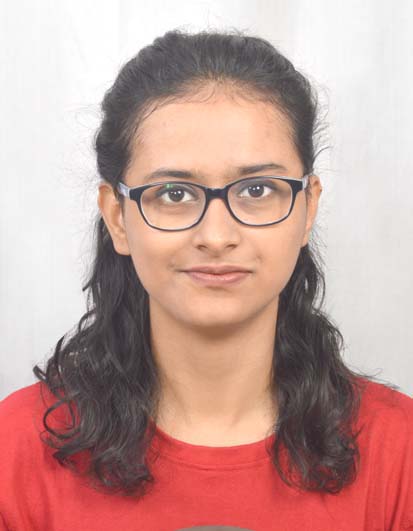
Ankita Sanyal is a doctoral candidate at Centre for West Asian Studies, Jawaharlal Nehru University, New Delhi. She worked as a summer intern at National Human Rights Commission, New Delhi in 2014 and participated in Global Initiative for Academic Networks, lecture on “Jerusalem and Abrahamic Faiths throughout the Ages” (November 2016); ICSSR-sponsored workshop on “Research Methodology Workshop in Social Sciences” (February 2019); and workshop on “Second Intensive Course on Women’s Studies in Islam and Iran” at the University of Religions and Denominations, Qom, Iran (August 2019). She currently has many publications and has presented papers in national and international conferences. She received certificate on completion of Level Two Persian Language course. Her area of interest includes minority studies, gender studies, cultural studies, education, peace and conflict studies.
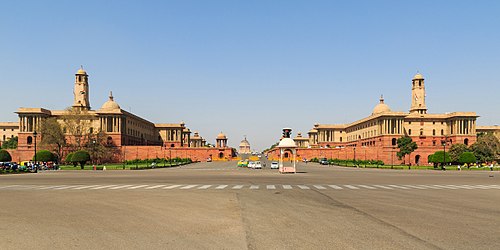
BILATERAL ISSUES BAHRAIN The CEO of LMRA highlights details on the new labour market reforms, .....
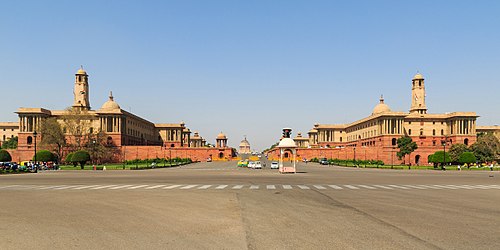
BILATERAL ISSUES EGYPT Raksha Mantri Shri Rajnath Singh to visit Egypt from September 19-20, 2.....
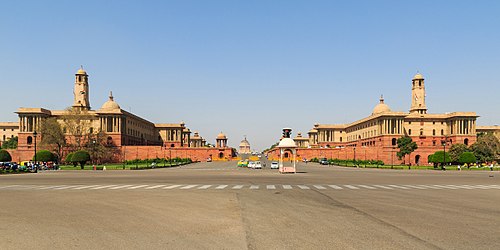
BILATERAL ISSUES IRAN Shri Sarbananda Sonowal visits Chabahar Port in Iran to Review work prog.....
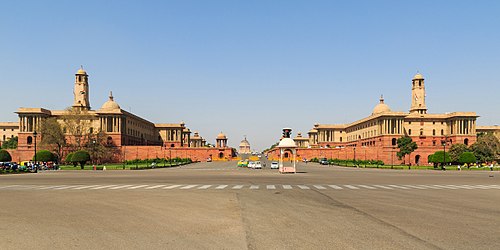
BILATERAL ISSUES BAHRAIN Deputy Chief of Naval Staff, India visits Kingdom of Bahrain, Manama,.....
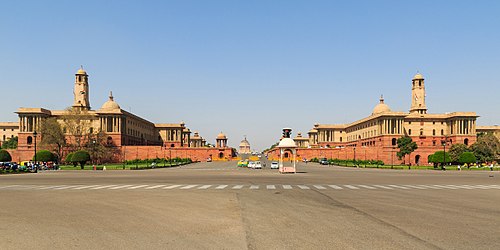
BILATERAL ISSUES BAHRAIN Buyer Seller Meet on Indian coffee between Indian exporters and Bahra.....
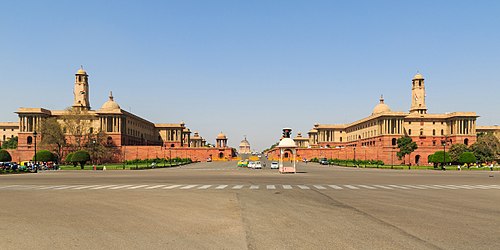
BILATERAL ISSUES BAHRAIN B2B meeting and Networking event between Bahraini & Indian IT com.....
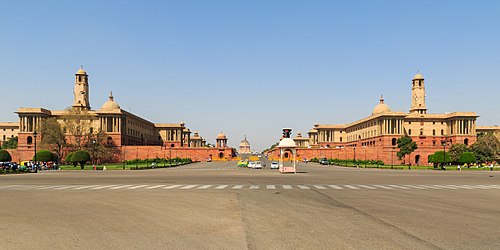
BILATERAL ISSUES OMAN Community Service Fortnight / Sewa Utsav’: ‘Celebration Thro.....
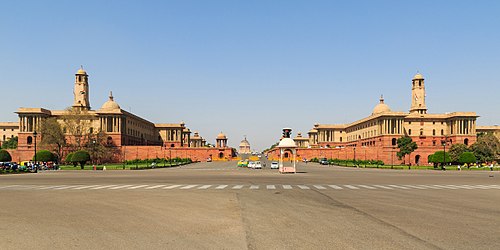
BILATERAL ISSUES BAHRAIN Virtual Buyer Seller Meet on agriculture and food products between In.....
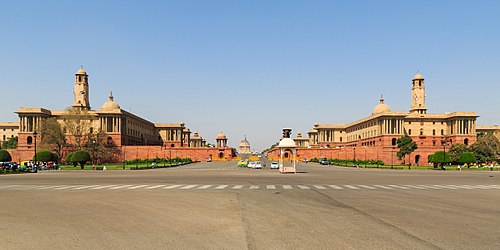
BILATERAL ISSUES BAHRAIN PM speaks on telephone with His Royal Highness Prince Salman bin Hama.....
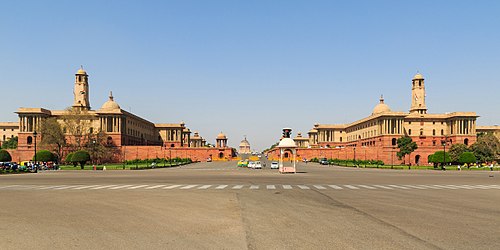
BILATERAL ISSUES ISRAEL Experts from India and Israel suggested expanding scope of India-Israe.....
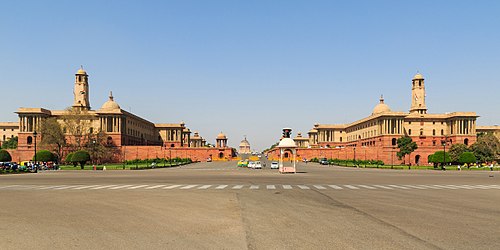
BILATERAL ISSUES BAHRAIN Press Release on virtual meeting between Minister for Education and S.....
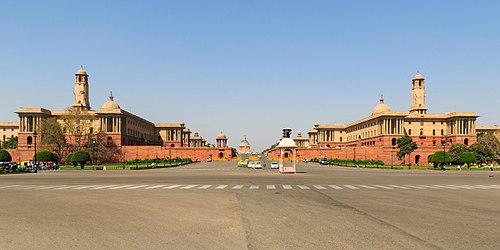
BILATERAL ISSUES BAHRAIN Ambassador’s visit to India Pavilion of Jewellery Arabia, Bahra.....
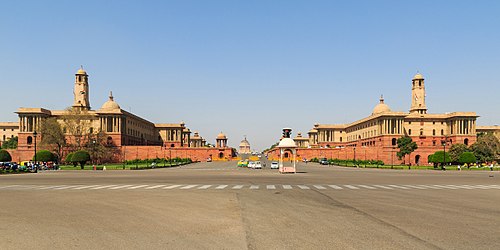
BILATERAL ISSUES BAHRAIN First consignment of GI tagged sweet dish Mihidana from West Bengal e.....
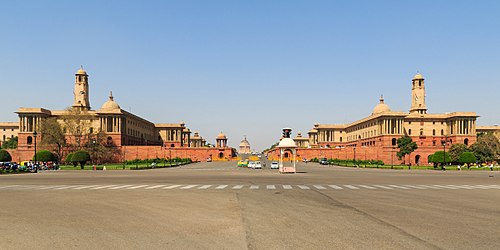
BILATERAL ISSUES ALGERIA Visit of Shri V. Muraleedharan, Minister of State for External Affair.....
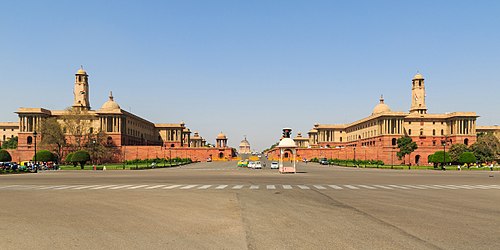
BILATERAL ISSUES ALGERIA INS TABAR undertook a bilateral Passage Exercise (PASSEX) with Algeri.....
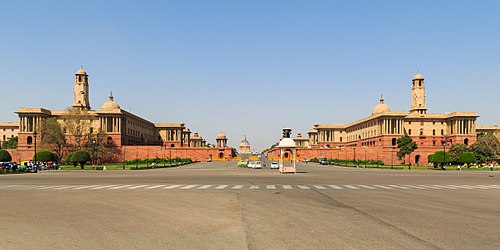
BILATERAL ISSUES BAHRAIN India expands mango export footprint to newer countries; GI certified.....
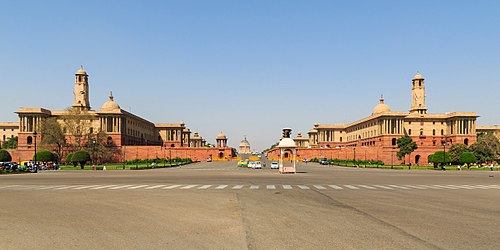
BILATERAL ISSUES ALGERIA APEDA in collaboration with Indian embassy organize virtual buyer sel.....
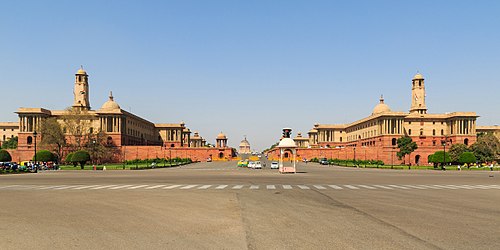
BILATERAL ISSUES EGYPT Procurement of 300,000 doses of Remdesivir from M/s EVA Pharma, Cairo, .....
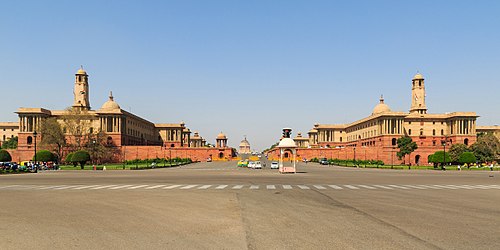
BILATERAL ISSUES BAHRAIN Third India-Bahrain High Joint Commission Meeting, New Delhi, 07 Apri.....
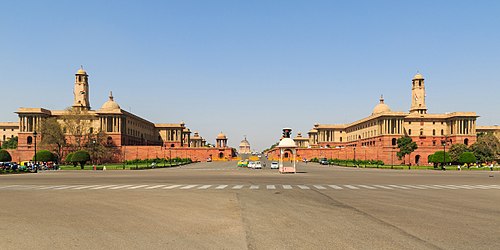
BILATERAL ISSUES BAHRAIN Indian Naval Ship Talwar’s Port Visit to Bahrain, Manama, 18 Ma.....
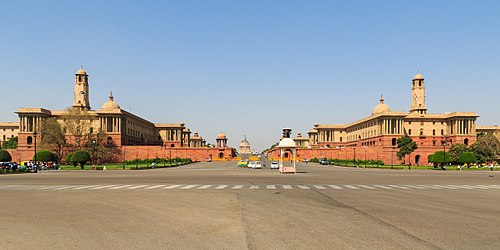
BILATERAL ISSUES IRAN Unstarred Question No.1475, Chabahar-Zaheden Railways Line, Lok Sabha, 1.....
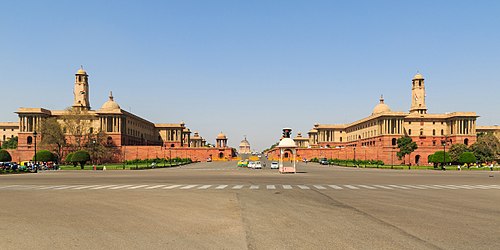
BILATERAL ISSUES IRAN Government of India strengthens cargo handling capacity of Chabahar Port.....
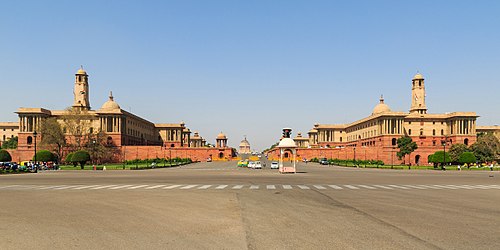
BILATERAL ISSUES BAHRAIN Warm greetings from Indian leadership on the occasion of Bahrain&rsqu.....
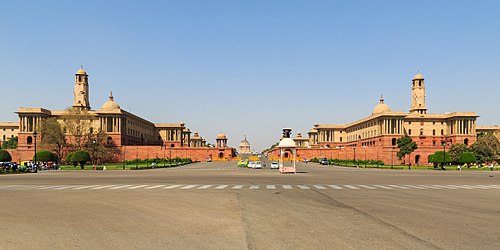
BILATERAL ISSUES BAHRAIN Prime Minister condoles the passing away of His Royal Highness Prince.....
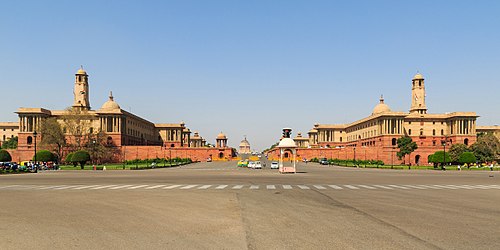
BILATERAL ISSUES BAHRAIN A B2B Webinar on Enhancing Opportunities in Pharmaceuticals and Alter.....
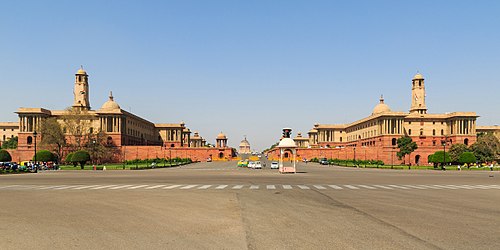
BILATERAL ISSUES IRAN Raksha Mantri Shri Rajnath Singh holds meeting with Iran's Minister .....
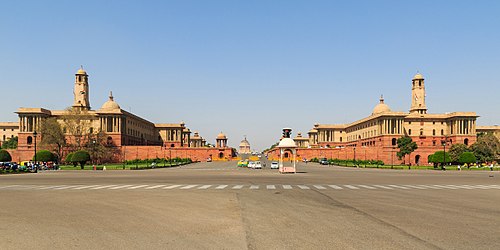
BILATERAL ISSUES ISRAEL Statement by the Official Spokesperson on the full normalisation of re.....
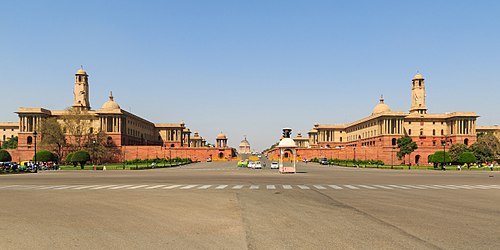
BILATERAL ISSUES ISRAEL Raksha Mantri Shri Rajnath Singh and Israeli Defence Minister telephon.....
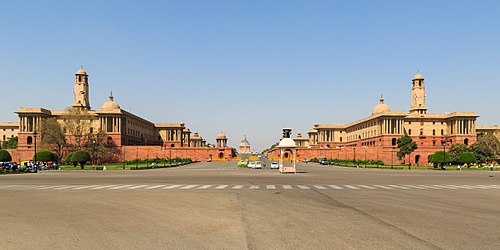
BILATERAL ISSUES IRAN Indian Navy Commences evacuation of citizens from Islamic Republic of Ir.....
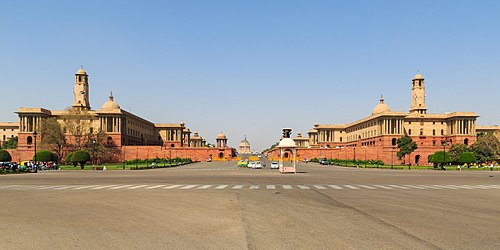
BILATERAL ISSUES EGYPT Phone call between Prime Minister Shri Narendra Modi and His Excellency.....
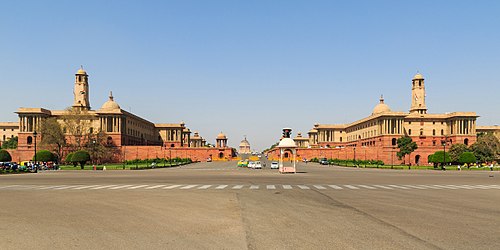
BILATERAL ISSUES BAHRAIN Telephone Conversation between PM and King of the Kingdom of Bahrain,.....
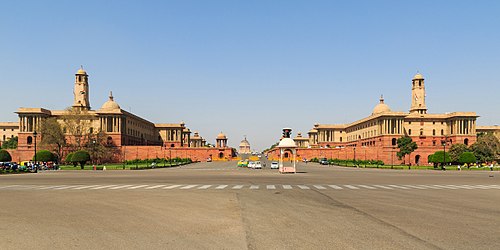
BILATERAL ISSUES IRAN IAF C-17 ‘Globemaster’ takes off for Iran, New Delhi, 9 Marc.....
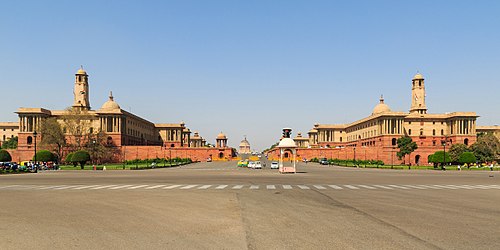
BILATERAL ISSUES IRAQ Travel Advisory for Indian Nationals travelling to Iraq, New Delhi, 19 F.....
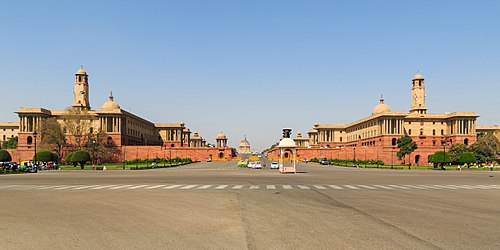
BILATERAL ISSUES EGYPT Photo exhibition on “Making of Indian Constitution and Life of Dr.....
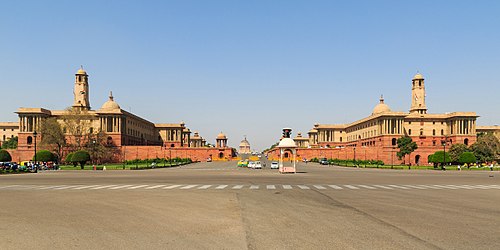
BILATERAL ISSUES EGYPT Prize Distribution Function of “Glimpses of India” Painting.....
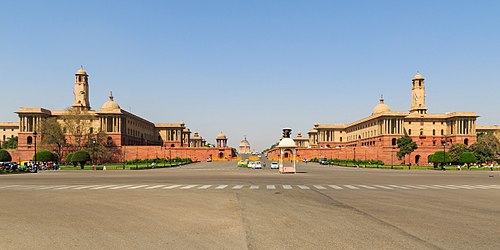
BILATERAL ISSUES EGYPT Consular Camp in Port Said on 22 November 2019, Cairo, 19 November 2019.....
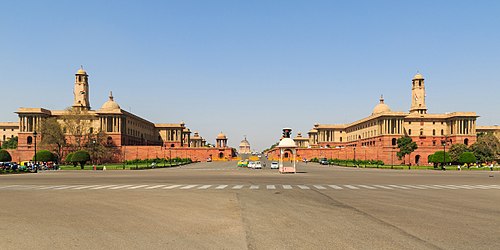
BILATERAL ISSUES a. IRAN Foreign Office Consultations between India and Iran, Tehran, 16 Septe.....
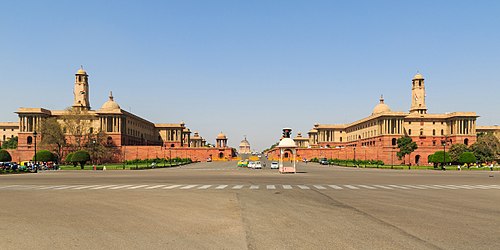
BILATERAL ISSUES a. BAHRAIN State Visits of Prime Minister to Bahrain (August 24-25, 2019), Ne.....
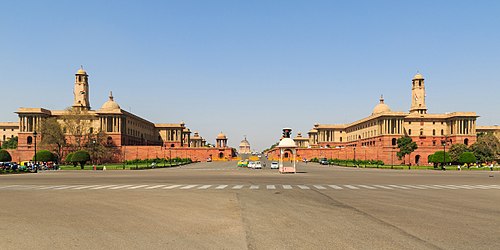
BILATERAL ISSUES BAHRAIN Cabinet approves Memorandum of Understanding between India and B.....
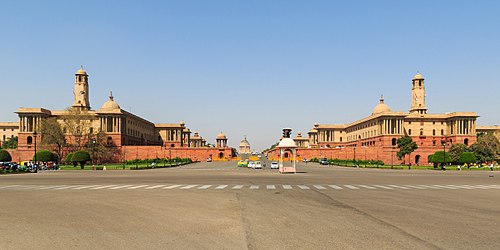
BILATERAL ISSUES IRAN UNSTARRED QUESTION No. 662 MPACT OF AMERICAN BAN ON CHABAHAR PORT, Rajya.....
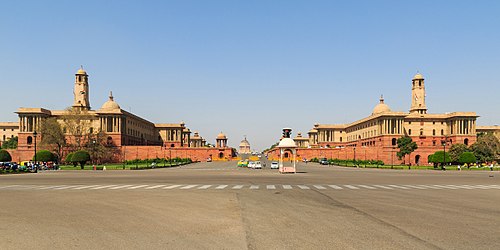
BILATERAL ISSUES IRAN 11th India Iran Joint Consular Committee Meeting (JCCM), New Delhi, 16 M.....
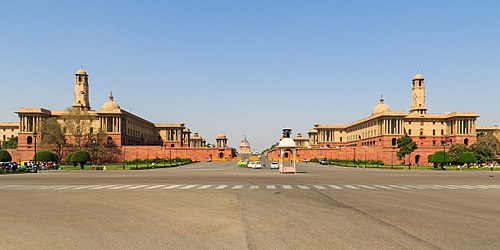
IRAN India extends relief assistance to Iran after recent floods, Tehran, 17 April 2019 In lin.....
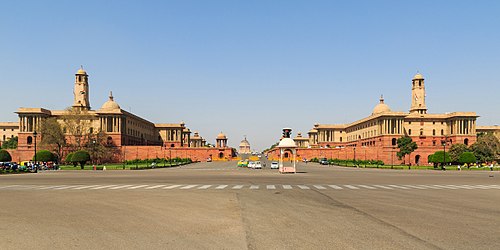
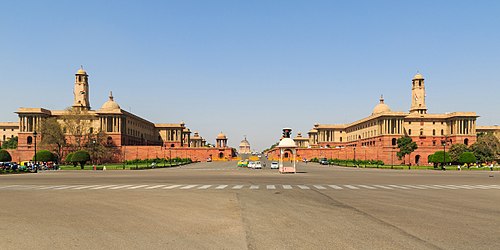
BILATERAL ISSUES EGYPT India condemns terrorist attacks in Egypt, New Delhi, 22 February 2019 .....
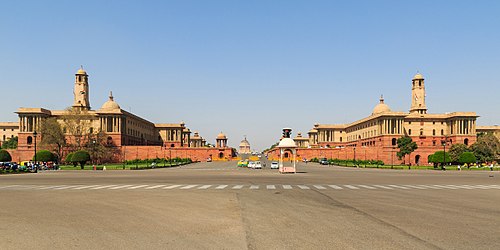
BILATERAL ISSUES ALGERIA Visit of Foreign Minister of Algeria to India (January 30-February 01.....
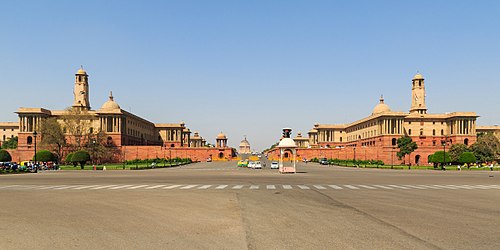
ALGERIA Cabinet approves Agreement between India and Algeria on Cooperation in the field of Space.....
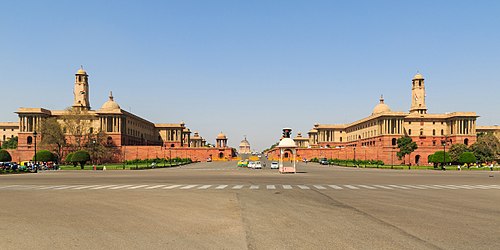
BILATERAL ISSUES IRAQ Jaipur Foot Camp in Karbala, Karbala, 21 November 2018 A 40-day Artif.....
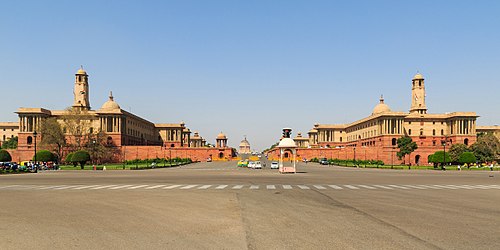
BILATERAL ISSUES KUWAIT Visit of External Affairs Minister to State of Qatar and State of Kuwa.....
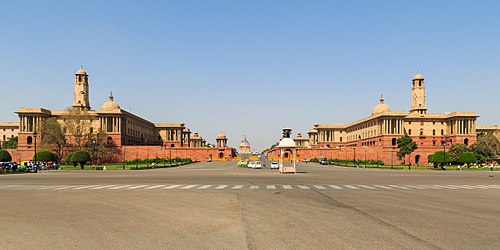
BILATERAL ISSUES EGYPT Cabinet approves MoU between India and Egypt on cooperation in the fiel.....
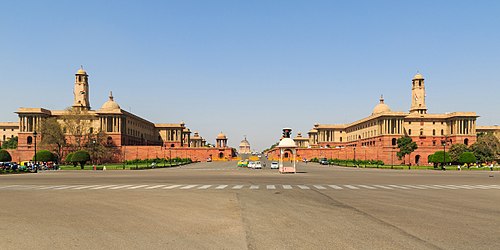
BILATERAL ISSUES BAHRAIN Question No. 3566, Unpaid Workers in Bahrain, Lok Sabha, New Delhi, 0.....
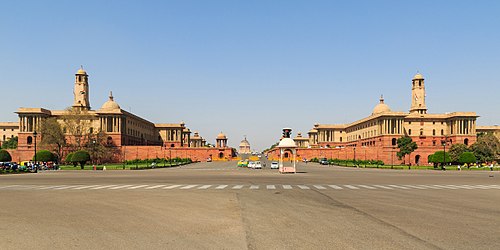
BILATERAL ISSUES BAHRAIN Visit of External Affairs Minister to Manama, Bahrain (July 14-15, 20.....
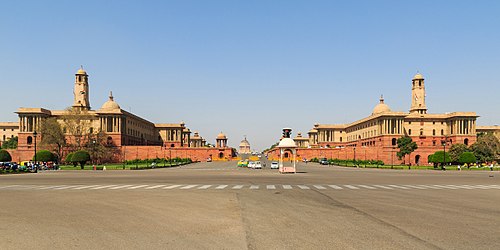
BILATERAL ISSUES BAHRAIN Cabinet approves MoU between India and Bahrain on cooperation in the .....
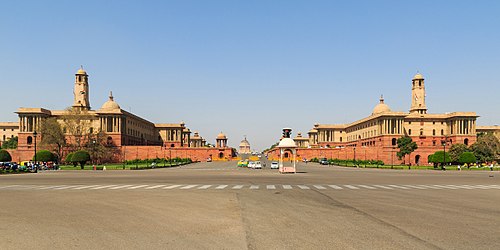
BILATERAL ISSUES IRAN External Affairs Minister’s meeting with Iranian Foreign Minister,.....
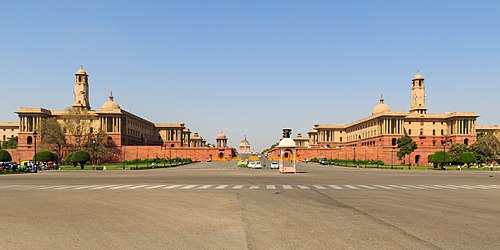
BILATERAL ISSUES IRAN Cabinet approves MoU between India and Iran on the establishment of an e.....
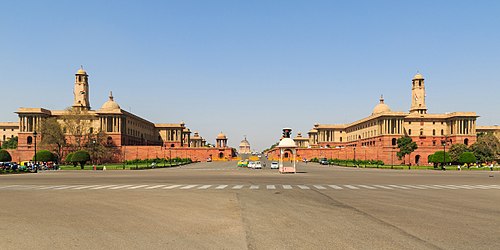
(Monthly Digest of Official Indian Statements on Middle East) BILATERAL ISSUES EGYPT Mr. Sa.....
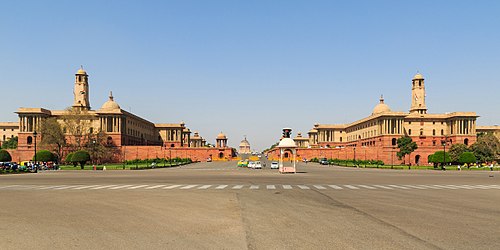
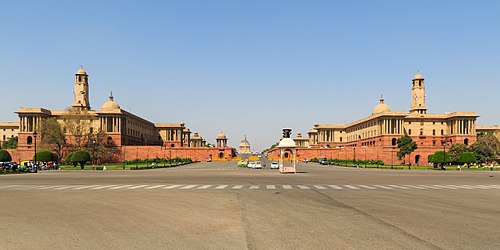
(Monthly Digest of Official Indian Statements on Middle East) BILATERAL ISSUES IRAN Launch .....
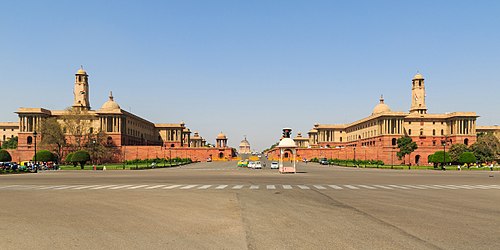
(Monthly Digest of Official Indian Statements on Middle East) BILATERAL ISSUES &.....
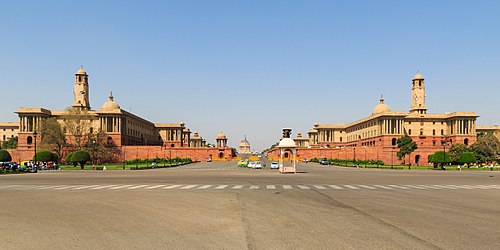
BILATERAL ISSUES a. EGYPT 1. H.E. Col. Rajyavardhan Singh Rathore, Minister of State for Youth.....
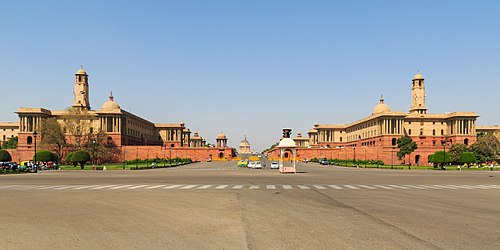
BILATERAL ISSUES a. IRAQ 1. India’s position on the Referendum held in the Kurdistan Reg.....
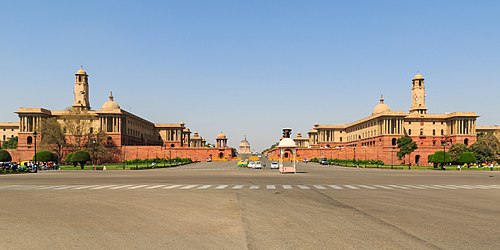
BILATERAL ISSUES IRAN 1. 6th Meeting of Joint Committee on Ports and Maritime Cooperation.....
